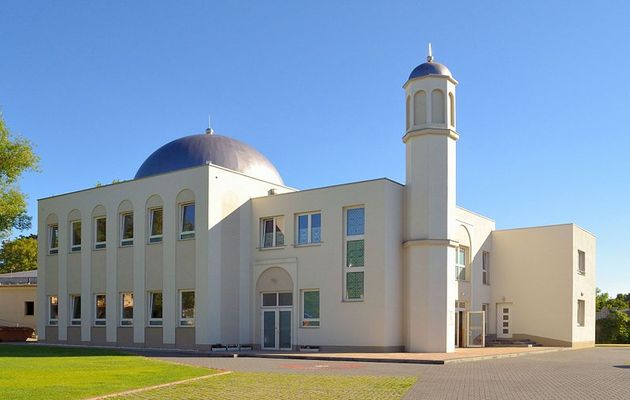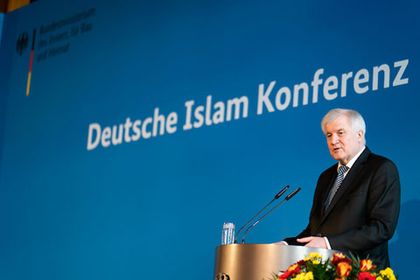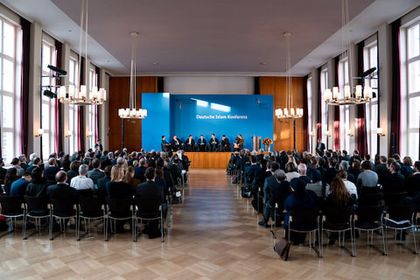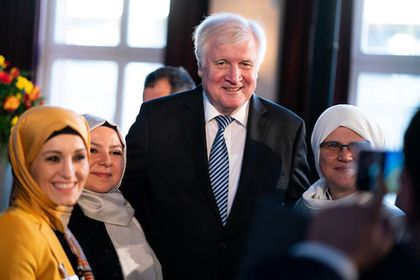“Muslims belong to Germany”, German Interior Minister says
The training of imams, the foreign influence on Germany's mosques, and the role of Islamic theology in universities, were some of the topics discussed at the German Islam Conference.
DIK, Deutsche Welle · BERLIN · 12 DECEMBER 2018 · 10:10 CET

The German Islam Conference (DIK in German), an initiative of the German Interior Ministry, held its fourth meeting in Berlin on November 28-29th.
The program was first launched in 2006, by former Interior Minister Wolfgang Schäuble, who brought together German Muslims and officials of the federal and local governments.
The conference aims to “facilitate the cultural integration of Muslims in Germany, to improve their religious and social participation, and to further develop the partnership and dialogue between government representatives and Islamic organizations”.
INTERIOR MINISTER SEEHOFER: “MUSLIMS BELONG TO GERMANY”
This year’s gathering was chaired by Horst Seehofer, the German Interior Minister, who opened the conference with a keynote speech, saying that “Muslims belong to Germany”.
“Muslims have the same rights and duties as all citizens of this country. There can be no reasonable doubt about that”, he added.
In March, Seehofer had said that “Islam doesn't belong to Germany”, and that “Germany has been shaped by Christianity”. His words created a controversy in the media.

INTEGRATION: “MUSLIMS IN GERMANY-GERMAN MUSLIMS”
More than 200 delegates attended the event, to discuss a range of issues such as the training of imams, the foreign influence on Germany's mosques and Muslim communities, and the role of Islamic theology in German universities, among many others.
The first day, there was a total of four podium discussions, each of which started with short lectures and finished with questions from the audience.
Under the headline “Muslims in Germany - German Muslims”, the first round of talks focused on fundamental aspects and challenges in the commitment to a successful coexistence of Muslims, among themselves and between Muslims and non-Muslims.
The three following discussions talked about integration policy, religious policy and socio-political priorities, focusing on everyday and practical experiences, questions, opportunities and problems in living together.
The discussion on the second day revolved around concrete, practical, life-worldly questions and challenges, such as: “How different or uniform can Islam be in, out of and for Germany, a Germany-based Islam? Is the diversity of Muslim advocacy groups and organizations a blessing or a curse - and how far can or should this diversity be overcome or preserved?”, among others.

LIBERAL MUSLIMS FIRST TIME PARTICIPATION
For the first time, liberal theologians and scientists were invited to the event, in addition to Muslim organizations like the Turkish-Islamic Union for Religious Affairs (DITIB) and the Islam Council that have always participated in the conference.
Seehofer invited Seyran Ates, who founded Berlin's liberal Ibn Ruschd-Goethe mosque, and the psychologist Ahmad Mansour, who frequently addresses religious extremism. Both are prominent proponents of secular Islam.
Since the first DIK in 2006, there has been a debate within Germany's Muslim community over who should attend the conference. Some groups have even boycotted the conference in the past.
There were also representatives of the Christian churches and the Central Council of Jews, the federal ministries, the federal states and municipalities as well as science and journalism.
#BLUTWURSTGATE
One of the most controversial issues of the conference were the pork sausages served at the Wednesday dinner, where most of the attendees were Muslims and could not eat pork.
It became viral in twitter under the hastag #Blutwurstgate.
Germany's Interior Ministry said the food selection had been designed for the “diverse religious attendance” at the German Islam Conference.
He added that “there was a wide range of food at the buffet, with vegetarian, meat, fish and halal dishes available, but if individuals were still offended for religious reasons, we regret this”.

However, Green Party politician Volker Beck slammed the Interior Ministry, writing on Twitter that “appreciating diversity means also considering different habits".
Meanwhile, the far-right Alternative for Germany (AfD) used the controversy to accuse critics of the Interior Ministry of attacking the German culture.
“Tolerance starts at the point where the blood sausage is seen simply for what it is: a German delicacy that no one has to like, but that, just like our way of life, cannot be taken away from us", AfD politician Alice Weidel wrote on Twitter.
Alongside the post was a picture of Weidel, smiling in front of several blood sausages topped with basil leaves.
TURKISH OPPOSITION LEADER CRITICISES THE CONFERENCE
Outside Germany, Turkey's opposition Nationalist Movement Party (MHP) leader called the German Islam Conference “a scandal”.
“The conference which convened with the slogan of 'Islam in Germany and for Germany' is carelessness and an insult on our belief", said Devlet Bahceli, addressing his party's parliamentary group meeting.
Published in: Evangelical Focus - cities - “Muslims belong to Germany”, German Interior Minister says
